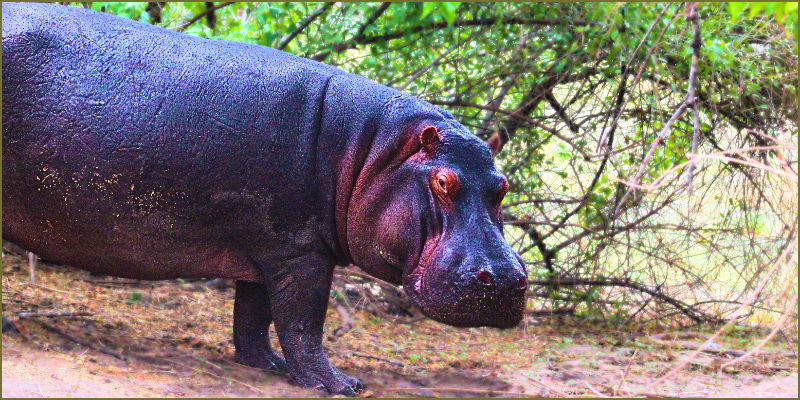River Horses in Hwange
Jul 25, 2024
Hwange National Park is one of the rare places where thousands of species continue to thrive in their natural habitat, free from fences or the encroachment of human activity. At Gwango, our efforts are dedicated to preserving the stunning beauty that surrounds us. Allow us to offer a glimpse into our fascinating wild world…
As the sun sets, casting its golden glow, animals gather around Nyamandlhovu Pan, one of the largest waterholes in Hwange National Park. Elephants splash playfully, their trunks sending water into sparkling arcs. Zebras and wildebeests mingle cautiously, ever alert for lurking predators. Graceful giraffes lower their long necks awkwardly to drink, while impalas and gazelles dart in and out, sipping quickly before retreating to safety. The air is filled with the sounds of splashing, grunts and the occasional roar of distant lions. Birds of every color flutter around, some daring to fly near the big animals, others keeping watch from the surrounding trees. In this moment, the waterhole becomes a snapshot of life in the African wilderness - a place where the circle of life is on full display, showcasing one of Hwange’s rare and beautiful wonders.
And now, let’s turn our attention to this week’s star of the show: the hippopotamus or the river horses as we call them, the third largest land animal on Earth. Our gaze is instantly drawn to these massive creatures as they gallop along the waterhole’s bottom, occasionally bouncing to the surface for a breath. They are mingling with one another while still submerged and once in a while, they open their herculean jaws, showing off in a way that would make any dentist proud. Boy, do they have big jaws!
Their jaws can open up to 150 degrees, paired with an impressively strong bite. Their large canine teeth, called “incisors” or “tusks,” can grow up to 50 centimetres (20 inches) in length. So, you definitely don’t want to be caught anywhere near that chomper!
Despite their fearsome tusks, hippos are mostly herbivores. Their diet is a hearty mix of grasses, aquatic plants and other vegetation. These big eaters graze on land during the cooler nighttime hours and retreat to the water during the day to escape the blazing sun. With their impressive appetites, they can consume massive amounts of vegetation in one sitting.
In the water, hippos are incredibly territorial. They fiercely defend their space, especially if they feel threatened. On land, however, they're a bit more relaxed - but don't let that fool you. These hefty beasts can run surprisingly fast, so it's always a good idea to keep a safe distance.
Here's a fun fact: just like elephants use mud to protect their skin from the sun, hippos have their own unique method. They use their poop to cover themselves, keeping their skin moist and cool. (Talk about a smelly mess and a sure way to keep everyone away from you!)
When you next come across a still waterhole, don’t let the stillness fool you. There might just be one of these fascinating river horses taking a nap in there. Over here, they’re not just another big animal in the savannah; they're an extraordinary blend of power, speed and a bit of a skincare enthusiast - with a very unique approach to sunblock!